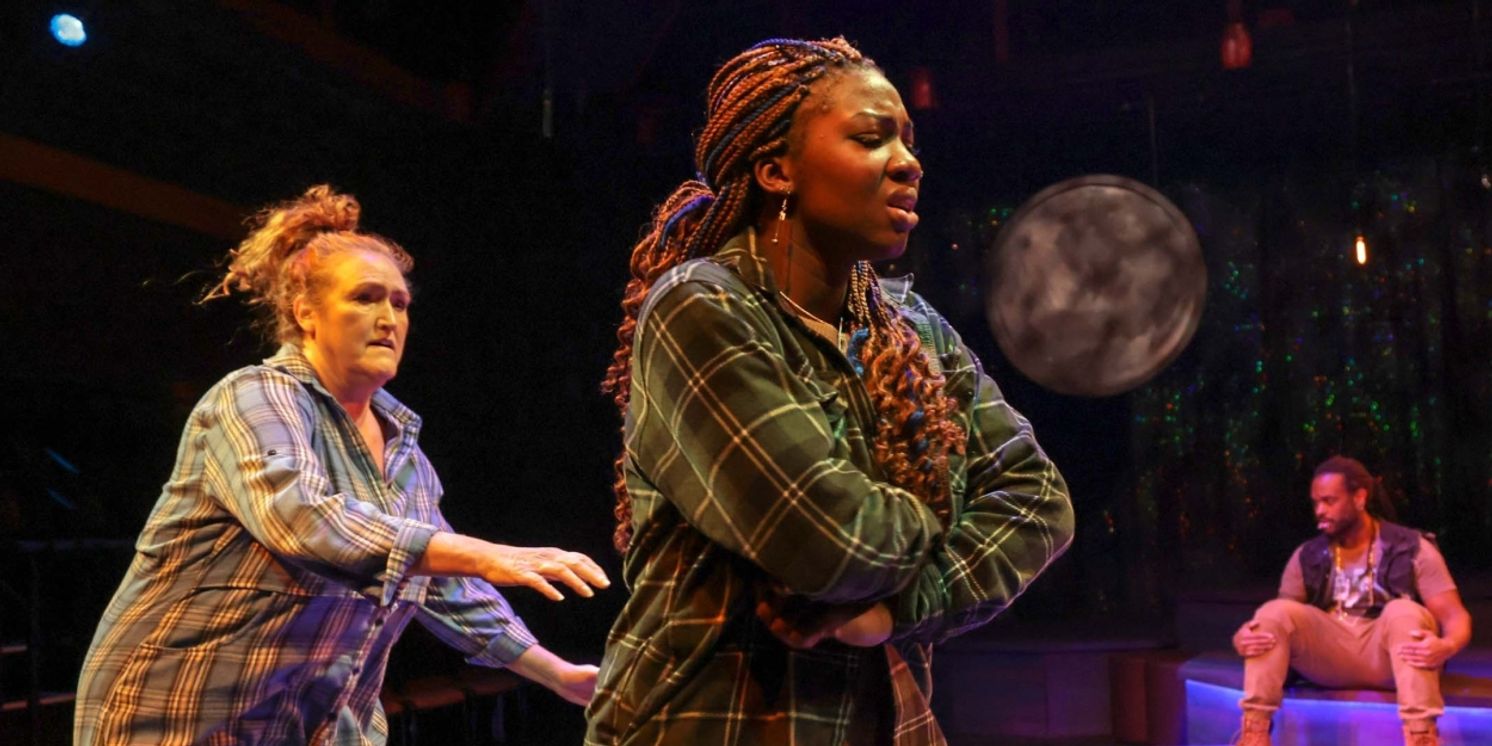Review: GOOD GRIEF: A BEST FRIEND PLAY at Riffe Center
The Contemporary Theatre of Ohio’s production captures the complexity of coping with loss

Irving Berlin, who composed many chapters in the Great American Songbook, once wrote, “The song is ended, but the melody lingers on.”
That is one of the many messages that comes out of The Contemporary Theatre of Ohio’s production of GOOD GRIEF: A BEST FRIEND PLAY. While it covers a wide range of topics, including adoption, friendship, parenting, and the power of memory, it is, at its core, about how people deal with grief. The play runs Nov. 2-19 at the Riffe Center (77 South High Street in downtown Columbus).
Written by Ngozi Anyanwu, GOOD GRIEF is a wild surfboard ride of emotions, from the giddiness of being on the crest of love to the undertow of the wave-crushing despair of loss. Directed by Shanelle Marie and Alan Tyson, the one-act, 100-minute play is well-written, exquisitely acted, thought provoking, conversation stirring, and emotionally haunting.
Nkechi (a delightfully energetic Latifat Sulaimon) is a college student from a Nigerian family coping with the death of her friend MJ (a mischievous George Swarn), who was killed in a car accident.
Their relationship is viewed through the prism of time that sprays out the different colors of their bond, but it is rarely in a chronological order. At one point during the show, the two are a couple as she returns home on a break from college. Later in the show, he is a flirtatious middle schooler and she is his defensive target as they square off in an Atari showdown of Pac Man skills.
At another part of the show, Nkechi persuades the now mega popular MJ to teach her how to kiss as she pursues the homecoming king JD (John Cuozzo).
As she recalls the events, she is constantly battling to recall each event the way they actually occurred against the way she wishes they would have gone. Many of the conversations she had with MJ often drift into how each would be remembered after they pass. At first, MJ said he wants to be remembered like a king, where he is buried would become sacred ground. The memory changes with MJ stating he wants to be like a demigod and that his remains would be sprinkled across the stars like Orion. And then, he simply asks to be remembered. “You won’t let me disappear, right?” MJ beseeches Nkechi.
While Nkechi tries to keep his memory fresh, her family represent the various ways others try to help the bereft “get over” loss.
Nkechi’s father (Brian Ellis) can’t understand why his daughter can’t get past the death. He teaches
his daughter to drive the same way as his admonishments of how to handle MJ’s death. “You need to move … You can’t just stop,” he tells her as she attempts to pull out of the driveway. “Was he your huzban? Carrying on like it was YOU who lost your life. What did you lose? NOTING. You have life. You have breath. You have a mothah and fathah. You have evryting …. Move, ehn?”
Nkechi’s mother NeNe (Anita Davis), on the other hand, wants to serve as her daughter’s counselor and help her process. However, she comes across at times as the person at a funeral who offers up the pithy “comforting” thoughts, like “they are in God’s hands” or “He’s in a better place.”
After Nene tells her daughter one folktale too many, Nkechi arches her eyebrow and lightly reprimands her with “Are you parable-ing me again?”
Her brother Bro (Chase McCants) tries to comfort Nkechi with the three Ns: Natural Light, narcotics, and nostalgia. As old school Bone Thugs-N-Harmony blares out of his boombox, Bro fails to soothe his sister with beer and weed and memories of MJ. In fact, his angst overcomes him as he states over and over again, “I can’t believe he’s gone.” As he tears up, he eyes his sister sheepishly and says apologetically, “My bad … This weed is mad strong.”
Even though laughter is supposedly the best medicine, it can’t always overcome sorrow. Perhaps the most heart aching moment in GOOD GRIEF comes when Nkechi encounters MJ’s mother (Darlene Spencer) at the cemetery. After Nkechi offers the obligatory “It was a nice service,” Spencer rants against the Catholic church and how her son didn’t even believe in Christianity. After talking about how ironic it is that she is following the tradition of returning her son to the earth, she breaks into a hearty laugh that slowly morphs into an anguished cry.
The play ends the same way it begins with Nkechi surrounded by white-roped spirits dancing around her. At the end however, Nkechi seems to find her sense of peace as she too dons a white robe and concludes her memories too become a part of the narrative and someday, she will leave her own trail behind her.
Perhaps that is Anyanwu’s message. As one of the theatergoers put it, the expression of loss comes in “many different packages. Sometimes, the wrapping’s torn, and the box is askew. But each person finds their own way to find their sense of meaning and, hopefully, peace.”
Reader Reviews
Videos

